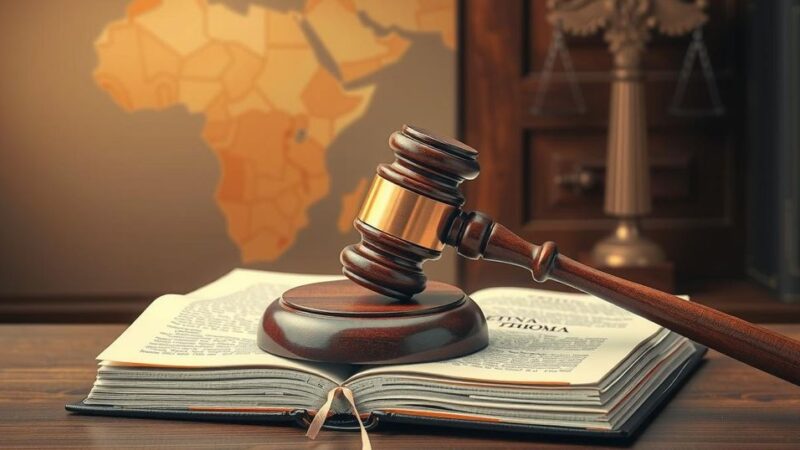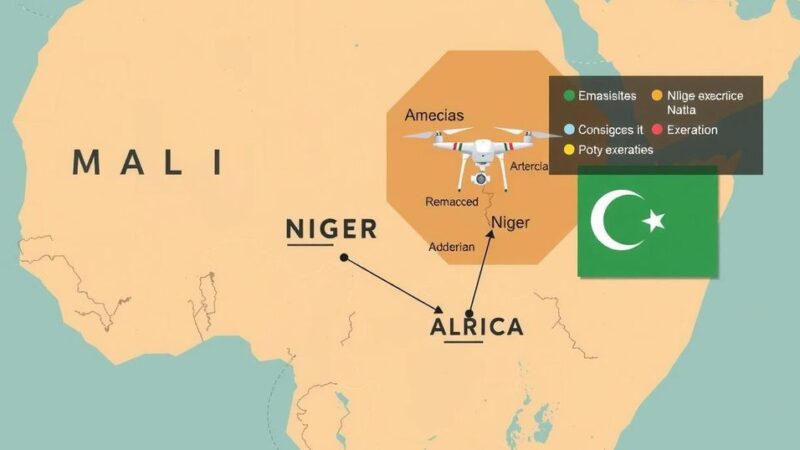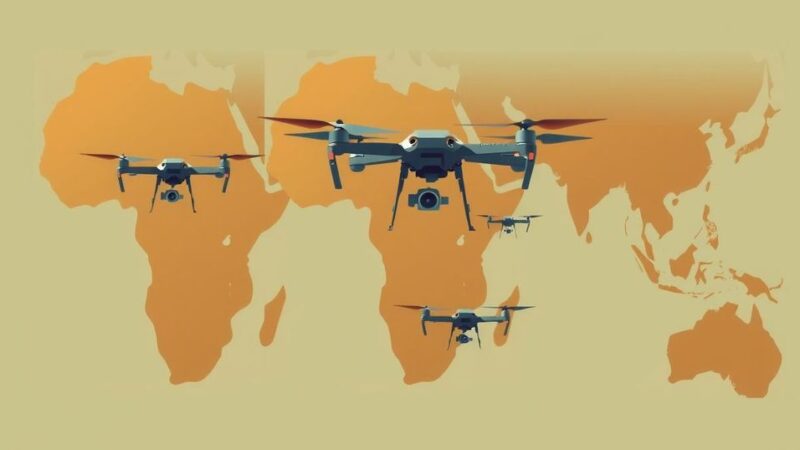The article discusses the ongoing struggle for the establishment of the Yavarí Mirim reserve in the Peruvian Amazon, aimed at protecting isolated Indigenous tribes from the encroachment of extractive industries. Delays in its creation jeopardize these communities as they face threats from illegal loggers and drug traffickers, while Indigenous leaders call for urgent government action to finalize the reserve’s boundaries.
Since 2003, Indigenous organizations have advocated for the establishment of the Yavarí Mirim reserve in the Peruvian Amazon, aimed at protecting hundreds of isolated Indigenous individuals. However, this territory, which spans 1 million hectares along the borders of Brazil and Colombia, faces opposition from extractive industries eager to exploit its natural resources through logging and oil extraction. Experts warn that delays in creating the reserve expose Indigenous communities to increasing threats from illegal loggers and drug traffickers.
The Multi-Sector Commission, responsible for delineating the reserve’s boundaries, recently postponed a crucial meeting that was slated for February 14. This decision, attributed to claims of overlap with another community’s territory, has drawn criticism from local Indigenous leaders, including Pablo Chota Ruiz of the Organization of Indigenous Peoples of the Eastern Amazon (ORPIO). He argues that the commission is using this overlap as a pretext to hinder the reserve’s creation, stating, “They are looking for any excuse to call off this reserve.”
Ruiz asserts that various industrial interests aim to prevent the reserve’s establishment for profit, highlighting substantial potential for logging, oil, and gold mining in the area. In 2018, anthropological studies confirmed the existence of several isolated Indigenous groups, but only official recognition of their territory would provide necessary protections against outside encroachment. Prompt government action to finalize the reserve is essential to ensure these communities can maintain their seclusion.
ORPIO has intensified efforts to push for the reserve’s demarcation, engaging with key government departments and securing meetings with officials, including a high-level discussion with Vice Minister of Interculturality Julio Jaén Rodríguez. Ruiz emphasizes the urgency of the situation, advocating for immediate solutions to ensure the welfare of isolated Indigenous populations.
In the wake of the postponement, regional forestry entities assembled to express opposition to the reserve, citing concerns over the overlap with current logging concessions. Betsabeth Cortegano Chota from the National Forestry Confederation (CONAFOR) emphasized that loggers do not oppose Indigenous communities but challenge the proposed reserve’s parameters. She stated that forestry rights, previously granted through public bidding, must be respected and retained.
Concerns about the oil and gas sectors complicate matters further. Environmental lawyer César A. Ipenza suggests that these industries may be seeking to delay the reserve’s establishment due to the potential for significant oil reserves in the Amazon region. Legislative efforts to allow drilling in protected areas raise alarms about the future of Indigenous rights and the preservation of their territories.
Historically, Indigenous communities have faced dire consequences due to external contact, such as forced labor and exposure to foreign diseases. “To survive, some groups had no choice but to retreat into the most remote corners of the forest,” noted Beatriz Huertas, an anthropologist. Today, these communities require large territories to sustain their hunting and gathering way of life, and without a designated reserve, their survival hangs in the balance.
The ongoing fight for the establishment of the Yavarí Mirim reserve highlights significant obstacles posed by extractive industries in Peru. Indigenous groups are facing increased encroachment on their territories, jeopardizing their way of life and existence. The legal recognition of the reserve is critical to ensuring the protection of these vulnerable communities, and urgent action is necessary from the Peruvian government to avoid further delays. Without proper protective measures, the future of these Indigenous peoples remains uncertain, emphasizing the need for immediate and effective advocacy.
Original Source: news.mongabay.com






